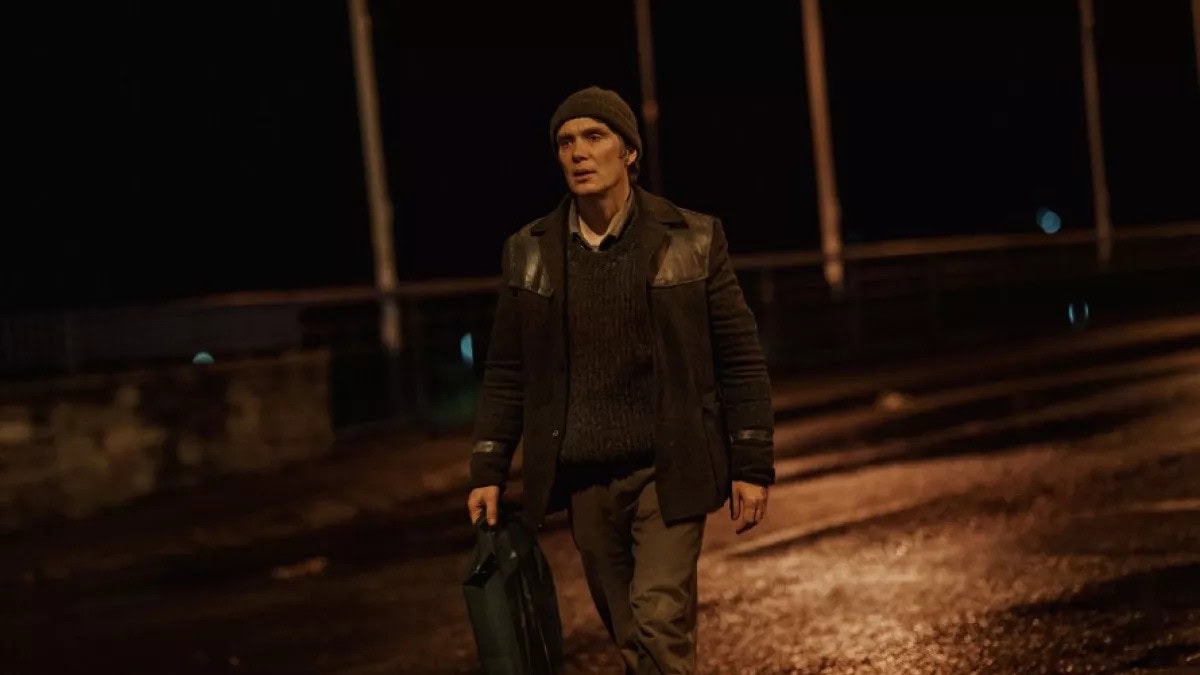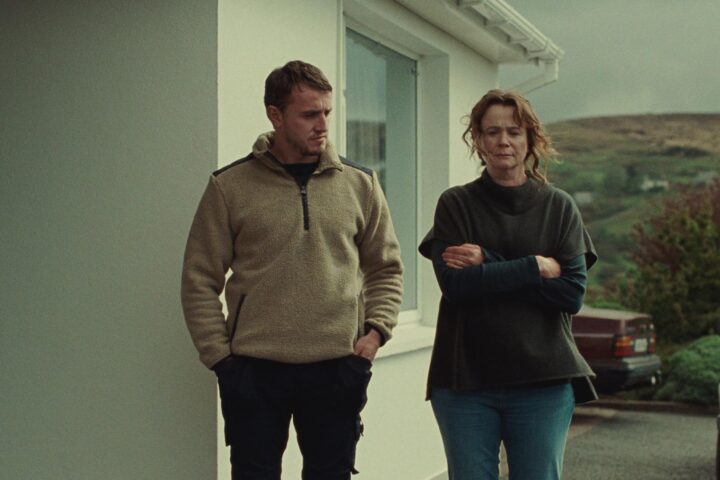One thing that rankles about some historical dramas is their tendency to indicate the story’s epoch using the broadest possible signifiers. Movies about the 1980s in particular often draw as much from the spirit of ’80s-themed house parties as they do from history. In contrast, Tim Mielant’s Small Things Like These fashions a believable and at times engrossing vision of the mid-’80s, even if its story could’ve benefited from similar nuance.
Adapted from the novel of the same name by Claire Keegan, the film takes place during the 1985 Christmas season in New Ross, Ireland. In this working-class town, not everything is “from” the ‘80s: People wear clothes that look like they’re from the ’60s, the kids watch ’70s cartoons like Danger Mouse, and some of the vehicles even seem as they’re from the ’40s. Small Things Like These understands how the vestiges of the past linger in the present in ways big and small.
Like the slightly dingy New Ross, Bill Furlong (Cillian Murphy) spends a good deal of the film’s runtime more or less gray-colored. He runs a small coal business, spending his days driving his truck through town, delivering coal and charcoal briquettes to local homes and businesses. Once home, he ritualistically washes off the soot that’s rubbed off onto on his face and hands.
The people of New Ross need Bill’s coal to fire up in their heating stoves—another reminder of how unlike “the ’80s” the ’80s could be. Bill’s route regularly brings him to the coal shed of the nearby convent, overseen by Sister Mary (Emily Watson), a local power player and, as we will learn, a cruel and sadistic overseer of her teenaged wards. Her institute is one of the infamous Magdalene laundries, convents where so-called “fallen women” were used as laborers and subject to corporal punishments that sometimes led to their deaths, kept secret for decades.
Bill, whose seasonal blues have been leading him to note more acutely the inequities of his allegedly tight-knit community, observes the plight of a young new inmate named Sarah (Zara Devlin) and soon finds himself in a moral quandary. The loving father of four girls and son of a dearly departed teenaged mother, he feels compelled to defy the moral small-mindedness of his community—and arguably, his nation and religion as wholes—and do something for the child.
Murphy is every bit as convincing as the bulky, quietly empathetic Bill as he was playing the gaunt, outspoken Robert Oppenheimer in Christopher Nolan’s Oppenheimer. Also memorable, cinematographer Frank van den Eeden shoots the bygone world of the film in a style befitting both the perpetual grayness of an Irish winter and the decade we’re meant to be in, replicating the low-contrast, slightly grainy look that we associate with ’80s movies.
Despite the presence of an existentially adrift blue-collar worker and the emphasis on rainy streets and everyday spaces, Small Things Like These isn’t quite an example of kitchen-sink realism. The moral schema of the film, for one, ends up having all the clarity of melodrama, with our suffering hero cast against a practically snarling villain that almost defies reality.
Mielant’s direction and Enda Walsh’s script are scarcely ambivalent, as in an unnecessary and rather dry series of flashbacks to Bill’s childhood, as well as Murphy’s symbolic washing of his hands in the bathroom sink. This ritual halts when he finally makes a decision to act, trading his Pontius Pilate-like ritual for a Jesus-like series of stations through the streets of New Ross. Maybe, then, rather than kitchen-sink realism, we can call this bathroom-sink realism, as that’s where meticulous realism gives way to at times hokey drama.
Since 2001, we've brought you uncompromising, candid takes on the world of film, music, television, video games, theater, and more. Independently owned and operated publications like Slant have been hit hard in recent years, but we’re committed to keeping our content free and accessible—meaning no paywalls or fees.
If you like what we do, please consider subscribing to our Patreon or making a donation.





